The Problem of Emancipation
ANTISLAVERY, ABOLITION, AND THE ATLANTIC WORLD
R. J. M. Blackett and James Brewer Stewart, Series Editors

THE
PROBLEM
 OF
OF 
EMANCIPATION

The Caribbean Roots of the
American Civil War
EDWARD BARTLETT RUGEMER

PUBLISHED BY LOUISIANA STATE UNIVERSITY PRESS
Copyright 2008 by Louisiana State University Press
All rights reserved
Manufactured in the United States of America
First printing
DESIGNER: Michelle A. Neustrom
TYPEFACE: Adobe Caslon Pro, Giza
TYPESETTER: J. Jarrett Engineering, Inc.
PRINTER AND BINDER: Thomson-Shore, Inc.
LIBRARY OF CONGRESS CATALOGING-IN-PUBLICATION DATA
Rugemer, Edward Bartlett, 1971-
The problem of emancipation : the Caribbean roots of the American Civil War / Edward
Bartlett Rugemer.
p. cm. (Antislavery, abolition, and the Atlantic world)
Includes bibliographical references and index.
ISBN 978-0-8071-3338-5 (cloth : alk paper) 1. SlavesEmancipationUnited States. 2. SlavesEmancipationWest Indies. 3. Antislavery movementsUnited StatesHistory19th century. 4. Antislavery movementsWest IndiesHistory19th century. 5. SlaveryPolitical aspectsUnited StatesHistory19th century. 6. SlaveryPolitical aspectsWest IndiesHistory19th century. 7. United StatesHistoryCivil War, 18611865Causes. 8. United StatesRelationsWest Indies. 9. West IndiesRelationsUnited States. I. Title.
E453.R84 2009
973.7114dc22
2008014733
The paper in this book meets the guidelines for permanence and durability of the Committee on Production Guidelines for Book Longevity of the Council on Library Resources.
for Kate

the voice of this nation is loud and incessant against the system of slavery. Its death warrant is sealed, so far as it relates to the British West Indies. The advocates of slavery are trembling, for the signs of the times proclaim that the end of their oppression draweth near.
NATHANIEL PAUL TO WILLIAM LLOYD GARRISON,
APRIL 10, 1833
The great Slave question has started in England, if realized [it] will transfer a great bearing on the United States: of course, the whole evil will fall on the Southern section. Already does greatthough secretanxiety cloud our atmosphere? Therefore Planters must entertain views of the future different from those of existing times, that they may be prepared to bear the [brunt] of baneful change in the coming state of affairs.
CHARLES DRAYTON II TO HIS SON,
AUGUST 13, 1833

Contents
Maps
The Atlantic World, Showing the Centers of Abolitionist Activity, Slave Rebellions, and Conspiracies from 1790 to 1842
A Map of the Northeastern United States, Showing the Sites of First of August Celebrations in 1838
Sources: Boston Liberator, Cincinnati Philanthropist, New York Colored American, New York Emancipator
A Map of the Northeastern United States, Showing the Sites of First of August Celebrations between 1839 and 1849
Sources: Boston Liberator (18391849), Cincinnati Philanthropist (18391846), New York Anti-Slavery Standard (18401849), New York Colored American (18391840), New York Emancipator (1839), Rochester North Star (18481849), Salem (Ohio) Anti-Slavery Bugle (1849), Washington, D.C., National Era (1849)
A Map of the Northeastern United States, Showing the Sites of First of August Celebrations between 1850 and 1860
Sources: Boston Liberator (18501860), New York Anglo-African (18591860), New York Anti-Slavery Standard (18501860), Rochester Frederick Douglass Paper (18531855), Salem (Ohio) Anti-Slavery Bugle (1850), Sandwich (Canada) Voice of the Fugitive (18511852), Washington, D.C., National Era (18501857)
Acknowledgments
I have looked forward to this moment when I could thank all those who helped along the way. The endeavor of historical research and writing has more than its share of solitary moments, but no one could do it without the support of family, friends, and colleagues.
Though I didnt know it at the time, this book has its origins in the late 1990s when I taught at St. Georges College in Kingston, Jamaica as a Jesuit volunteer. I became thoroughly captivated with Jamaican culture and society, its vivacity and creativity. Where did all of this come from? Jamaican students, friends, and fellow teachers offered hints, but still, I wondered. As I began graduate school wiser heads told me gently that I might benefit from broadening my interests beyond one island. I branched out into the history of the United States and here we are with this book.
The book began as a dissertation at Boston College. Lynn Lyerly was the ideal adviser. Our discussions of the history of slavery were formative to my thinking, and her sharp insights and careful readings of everything I wrote were invaluable. Few people are as passionate about History as David Quigley. I have benefited enormously from our many conversations, his three-part questions, and his careful readings of my chapters. David Northrup was the first to suggest that I think Atlantically, to dissolve some of the artificial geographies in which we are taught to think. Frank Taylor taught me about Caribbean history and the art of telling a good story. Long conversations with Karen Spalding and Ginny Reinburg shaped my historical consciousness, I will always treasure my time with them. Crystal Feimster, Robin Fleming, Lynn Johnson, Alan Rogers, and Sergio Serulnikov, though not directly involved with this project, all contributed to my training as an historian in important ways. In the early stages of research I met Joan Cashin at the Huntington Library in San Marino, California, where we shared a wonderful month of research and conversation. She read drafts of each dissertation chapter and helped me appreciate prose. Graduate student colleagues have been equally important. Todd Romero has been a steady friend, a gracious groomsman, and a model scholar. Stephanie Kermes, Libby MacDonald-Bischof, Ken Shelton, Dolly Smith-Wilson, and participants in the Americanist writing group at Boston College read chapter drafts, listened, and shared ideas that have made this project better and the study of history fun.
The transition from dissertation to book has benefited from the help of scholars and friends. Jim Stewart agreed to serve on the dissertation committee knowing little about me beyond the title of a conference paper for SHEAR in 2002. Jim read the manuscript several times and his incisive critiques have improved the book immeasurably. Perhaps more important, he provided the wisdom of a senior scholar to a young historian who was a little concerned that he had bitten off more than he could chew. Seymour Drescher read the completed dissertation and his extensive readers report was my guiding light for the first revision. Richard Blackett read the revised version and made a fundamental intervention that made this a far better book. David Brion Davis read the dissertation and the twice-revised manuscript. His scholarship was seminal, of course, in the conceptualization of this study, his readers report proved an invaluable guide for the final revision, and it is hard to convey how important his enthusiasm for this project has been to me.

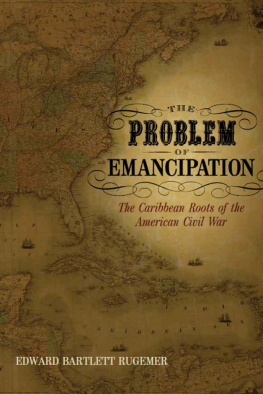

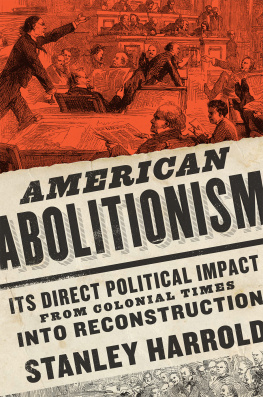
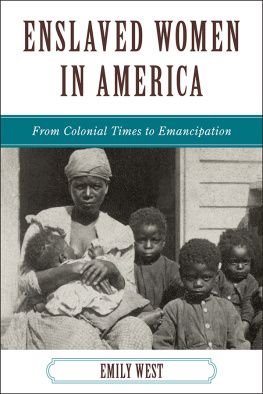
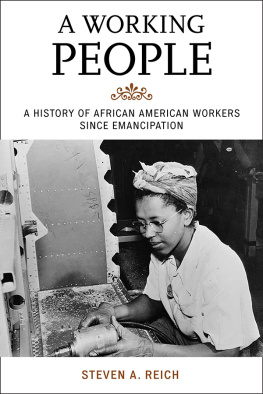
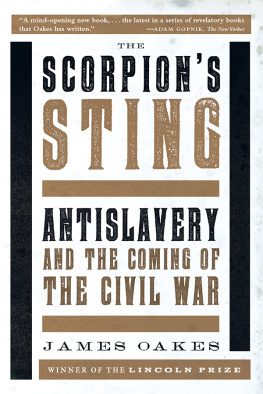
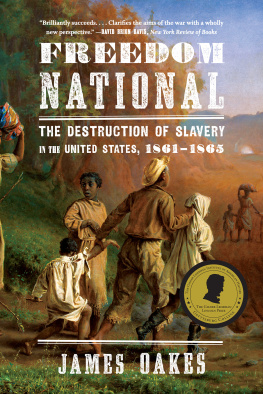
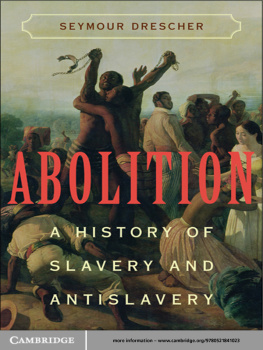
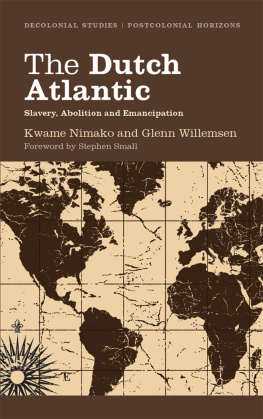
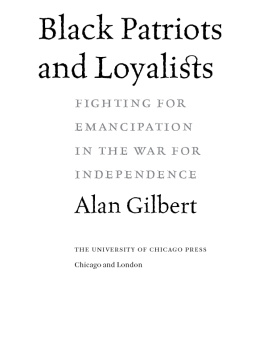
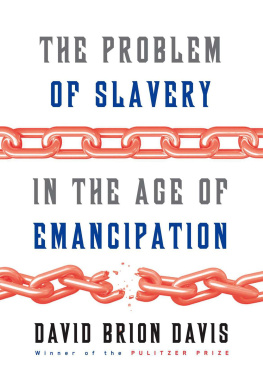

 OF
OF 



